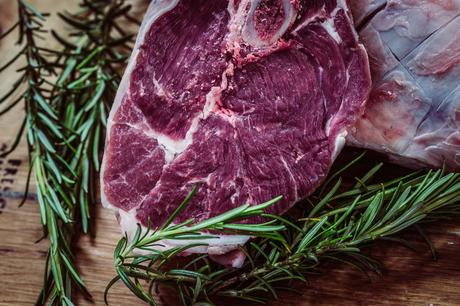
The quality of what we eat is important, but the provenience of our food is just as critical. We're already familiar with concepts like nutritional value and caloric intake, but it seems like these are just a part of what healthy food means. Therefore, it's time to look further-what is the source of our food?
When it comes to plants and vegetables, we're interested if any pesticide that was used in the growth process, what kind of fertiliser was used to help them spur, and similar criteria. In simpler words, we're interested in how our meal-to-be grew to be an ingredient in our kitchen. When it comes to meat, the way the animal was raised is just as important. Not only does it impact the nutritional value and the quality of the food that ends up on our table, but it also has a say in our health and well-being.
Why Should You Eat Grass-Fed Meat?
Is there really any difference between grass-fed beef and conventional beef? Keep on reading what our friends at Eat Great Meat have to say about the benefits of eating beef raised on grass.
1. Grass-fed Beef is More Nutritious
Grass-fed beef is more nutritionally dense than other types of beef, which means you get more nutrients per calorie.
The amount of Omega-3 fatty acids found in grass-fed meat is about 5 times higher than other types of meat and there's twice as much linoleic acid (also known as Omega-6 fatty acid) than in grain-fed meat.
Although these amounts don't come close to what fatty fish like the tuna or salmon provide, grass-fed beef is a considerably healthier alternative to conventional beef.
It also provides considerable amounts of iron, selenium and zinc, which are found in grass.
2. You Also Get Fewer Calories per Gram
The ratio provided by grass-fed beef between unsaturated and saturated fats meets the healthy recommendations for our modern diet.
Moreover, the total amount of fats found in grass-fed beef is lower than those present in the conventional counterpart. Since fat is the nutrient providing most calories per gram, less fat also means fewer calories.
3. Twice Less Likely to Contain "Superbugs"
From meat to fruits and vegetables, all foods contain bacteria. However, most of them are destroyed while they are exposed to heat. This is why thorough cooking is recommended for many foods.
If you prefer your steak rare, the chances of dealing with bacteria and "superbugs" are high. "Superbugs" is a term used to refer to any bacteria resistant to at least three types of antibiotic, which are typically found in mass-produced meat.
Thanks to the conditions in which the cattle is raised, meaning without antibiotics and hormones, grass-fed beef is twice less likely to contain "superbugs".
Benefits for the Consumer and the Planet
Choosing grass-fed beef is not only a healthier choice for yourself but also for the planet. Compared to mass-produced meat, which puts quantity over quality, raising beef on grass puts quality first, making it a more sustainable choice for the planet.
